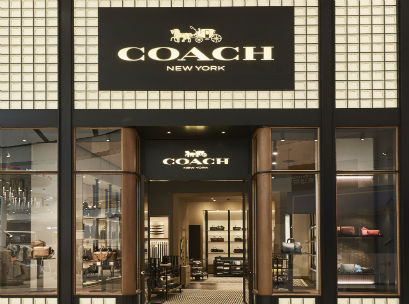 Tapestry will create a fashion hub and centre of excellence in Sydney, after announcing the buyback of its Coach business in Australia and New Zealand from the local distributor.
Tapestry will create a fashion hub and centre of excellence in Sydney, after announcing the buyback of its Coach business in Australia and New Zealand from the local distributor.
The retailer expects “a closing in the third fiscal quarter” as it looks “to drive growth across our portfolio, further unlocking the value of a multi-brand operating model.”
The news was included in the company’s second quarter results announcement in which Tapestry revealed a 35 per cent increase in sales, largely fuelled by the addition of the Kate Spade operations to its figures after its acquisition last July.
Net sales totalled $1.79 billion for the second quarter, up from $1.32 billion in the prior year, while net income was $63 million.
Tapestry, formerly known as Coach, has also taken back operational control of its Kate Spade China joint ventures in Hong Kong, Macau, Taiwan and the mainland.
CEO Victor Luis described the move as “an important business development initiative” and part of a plan by the group to assume greater direct control over its international distribution.
The company has also entered into a purchase agreement to acquire the Stuart Weitzman business in Northern China from its distributor.
Luis said the second quarter performance exceeded the company’s expectations, with a return to growth for Coach, improved sales at Stuart Weitzman and the contribution of Kate Spade which continued to make progress after its integration into the business.
“We believe that the prospects for the brand remain good and that any softness in the North American market can be offset by a more aggressive and coordinated approach to international expansion,” said Neil Saunders, managing director of GlobalData Retail.
“On this front, we are encouraged that Tapestry is taking back direct control of the Coach business in Australia and New Zealand and believe that this will help to improve the brand’s presence and influence in the region,” he said.
Saunders said while sales growth of 35.1 per cent looks impressive, most of this is down to the inclusion of Kate Spade in Tapestry’s numbers.
“When this is excluded, growth falls back to a more modest 2.2 per cent,” he said.
“Although this may appear soft in the context of healthy trading over the holiday season, in our view it represents a significant step forward for the group.
Most pleasing is the return to growth of the Coach brand which has, for some time, seen revenue slide as the result of a pullback from a number of sales channels, including department stores.”
Looking beyond Coach, Tapestry’s newest brand, Kate Spade performed less well, according to Saunders.
“Global comparable sales declined by 7 per cent over the period, driven in part by a fall in e-commerce.
“As much as this looks disastrous, the dip is mostly the result of a deliberate change in strategy, with Tapestry pulling back from the flash sales and heavy discounting that Kate Spade previously used to drive revenue. Predictably, this has resulted in a dramatic volume decline and waning interest among some consumer segments.”
Access exclusive analysis, locked news and reports with Inside Retail Weekly. Subscribe today and get our premium print publication delivered to your door every week.





